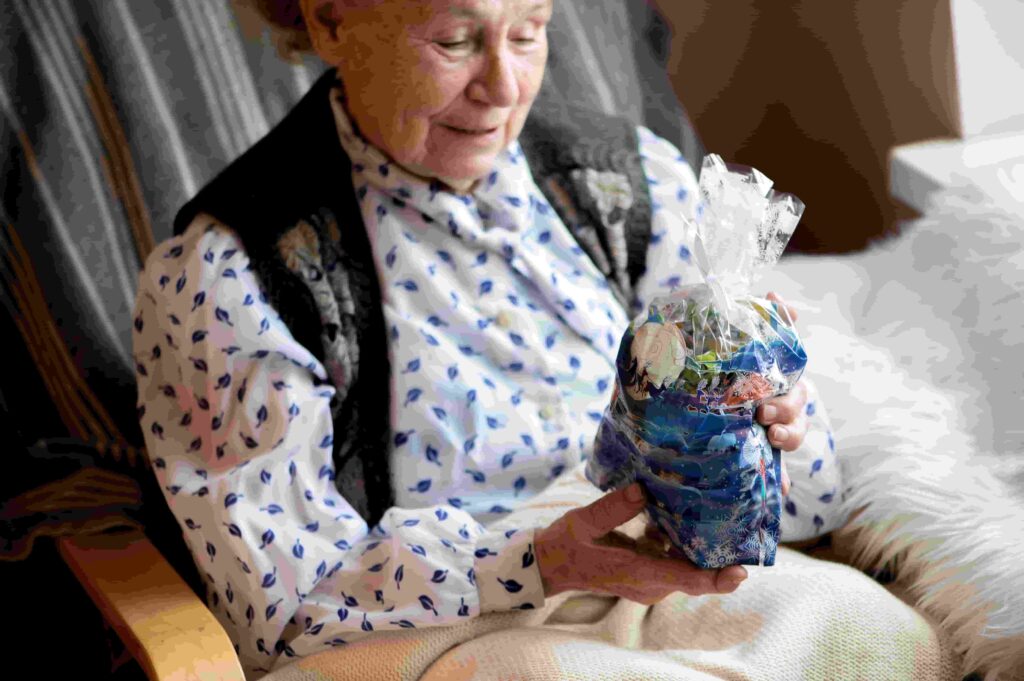Every great story begins with a moment of clarity, the instant when love stops being abstract and turns into action.
Finding the right Alzheimer’s care for a loved one is one of those rare stories: it requires tenderness, logic, and the courage to ask uncomfortable questions.
There’s no single map for this journey, but there are constellations to follow.
Start by listening
Before researching communities or calling specialists, pause. What does your loved one value most in a day? Silence, sunlight, company, music?
Understanding their rhythm will help you recognize which environment will actually feel like home.
Look beyond appearances
A beautiful lobby or a polished brochure doesn’t guarantee meaningful care. When you visit a community in Germantown, pay attention to the tone of conversations:
- Do staff members call residents by name?
- Are small confusions treated with patience or with haste?
- Does the space smell like real life—coffee, garden, clean linens—or like a waiting room?
Ask the questions that reveal culture
Every family asks about cost or availability, but few ask about continuity of presence. Who stays at night? Who listens when someone can’t find the right word?
True memory care is not about perfect order; it’s about gentle improvisation in the face of forgetfulness.
Observe how time feels
Walk through during a weekday afternoon. Is there laughter? Music? A sense of flow?
Communities that understand Alzheimer’s don’t just manage time—they shape it, giving every hour a soft purpose.
Trust what lingers
After each visit, notice what stays in you. Was it a staff member’s warmth, a resident’s calm smile, the light through a window? That residue is often the most reliable sign.

What True Memory Care Really Means
Every family that faces memory loss begins by searching for answers. At first, those questions sound technical: Which community provides the right level of care? What therapies exist? How secure is the environment?
But soon the search becomes something else entirely. It turns into a lesson in how we protect love when memory begins to loosen its threads.
Memory care, at its essence, is a form of architecture made of empathy. It arranges time, space, and human attention so that daily life keeps its rhythm. The goal is not to restore what was lost, but to preserve what still blooms, the moments of recognition, the spark of laughter, the comfort of routine.
The Foundations of True Memory Care
A genuine memory care environment speaks softly.
It guides without overwhelming, and creates familiarity through details that seem small but hold deep meaning:
- A hallway painted in gentle tones that help residents orient themselves.
- A song played every morning that becomes an anchor for the day.
- A caregiver who takes a few extra seconds to listen, not out of duty but out of understanding.
These gestures build a form of continuity that medication alone cannot achieve. They remind each resident that life still has texture and pattern.
In Germantown, Tribute at Black Hill has shaped this approach into a daily practice. The design of its spaces invites calmness; sunlight filters through the common areas, and each room feels both open and secure. Residents can walk through gardens that encourage movement and curiosity, while families find reassurance in knowing their loved ones are protected without feeling confined.
Here, care is a dialogue. It adapts, it listens, it adjusts to each person’s story.
Care that Nurtures Safety and Independence
Creating a safe environment for someone with Alzheimer’s or dementia requires more than alarms and locks. It’s about cultivating a sense of trust in people, in place, in the rhythm of the day.
At Tribute at Black Hill, the principles of memory care extend into every routine:
- Continuous support from a compassionate team trained in both healthcare and human connection.
- Spaces that encourage movement, arranged to minimize confusion and promote confidence.
- Personalized assistance with daily activities that preserve dignity and choice.
- Balanced nutrition, with chef-prepared meals that awaken familiar tastes and memories.
- Health monitoring and medication management, handled quietly and respectfully.
- Therapeutic programs—art, music, sensory experiences, cognitive exercises—that keep the mind active and the spirit engaged.
Families often notice that their loved ones begin to respond differently once these elements are in place. The environment itself becomes part of the therapy: the lighting, the pacing of activities, even the way caregivers use tone and touch to communicate calm.
How Families Can Guide the Transition
One of the most delicate moments comes when it’s time to talk about the move. Explaining the idea of memory care can awaken fear or confusion, but it can also become a moment of tenderness if approached with patience.
Here are some ways to ease that conversation:
- Begin from shared experiences.
Talk about what brings comfort—music, conversation, a favorite routine—and explain how these moments will continue in a new place. - Use concrete language.
Speak of rooms, gardens, meals, or friendly faces, not of “facilities” or “institutions.” - Offer choices where possible.
Let your loved one decide what to bring, what photos to hang, or what outfit to wear for the first day. - Emphasize continuity.
This new space is an extension of their life, not a replacement. - Be gentle with time.
Transitions take days or even weeks to settle. Familiarity builds slowly, one morning at a time.
These small steps can make a profound difference. They transform the process from a logistical change into an act of shared trust.
The Deeper Meaning of Memory Care
Families who choose Tribute at Black Hill often describe a sense of relief that goes beyond practical safety. They discover a place where care feels human again, where professional skill coexists with affection, and where every resident is treated as a person with a history worth protecting.
Memory care, when done well, doesn’t just guard the mind. It nurtures the continuity of identity.
It allows someone to live surrounded by reminders of who they have been and gentle invitations toward who they still are.
That is what true memory care means: not a loss, but a reshaping of life; still tender, still curious, still shared.
Questions That Lead You to the Right Community
Choosing memory care requires more than brochures and polished promises. It calls for questions that uncover culture, practice, and heart. Take them with you. Write down the answers. Notice the silences.
The Culture of Care
- How is the team trained in dementia care, and how often is that training renewed?
- What is the staff turnover rate in the memory care neighborhood?
- Who provides support overnight, and how many caregivers are on each shift?
- How are agitation, anxiety, or wandering handled without relying immediately on medication?
Clinical Support and Coordination
- Who leads the clinical side of care, and how frequently are residents evaluated?
- How are medications managed and prescription changes communicated?
- What happens if there’s a sudden fall or behavioral change? Can they describe the protocol?
- Is there support for advanced stages and end-of-life comfort care?
Daily Rhythm and Meaning
- What activities are offered throughout the day, and how are they personalized?
- How do music, art, movement, and cognitive exercises fit different ability levels?
- What happens when someone prefers not to participate—is there a quieter alternative?
- How are personal histories, interests, and rituals honored in everyday life?
Environment That Guides and Comforts
- How do lighting, colors, and signage help with orientation and calm?
- Are there safe outdoor spaces for walking, gardening, or simply sitting in the sun?
- How is background noise reduced during sensitive hours to avoid overstimulation?
Meals That Bring Comfort
- How are textures and flavors adapted to individual needs?
- Can families join a mealtime to observe the atmosphere?
- What happens if a resident becomes distracted or stands up frequently while eating?
Care Plans That Stay Alive
- How often are care plans reviewed, and who participates in those discussions?
- How is emotional well-being measured beyond vital signs and charts?
- Are small daily successes recorded and shared with the family?
Family Involvement
- How are families updated—phone calls, text messages, monthly meetings?
- What family events or rituals invite children and grandchildren to join?
- Is there flexibility for spontaneous visits when the heart simply asks for presence? 😊
Transparency and Clarity
- What does the base rate include, and what services add additional costs?
- How are pricing adjustments communicated and how far in advance?
- What circumstances might require a higher level of support, and how is that decision made?
Mini Checklist for Your Visit
- Were you greeted by name and with genuine warmth?
- Did you see a resident smiling without hurry, a caregiver bending to meet eye level, a reassuring hand resting gently on a shoulder?
- Did you sense a rhythm—music in the morning, calm after lunch, soft light in the evening?
- Did you leave with a quiet peace that you didn’t need to explain?
🌺 How We Live It at Tribute at Black Hill, Germantown, MD
Our memory care neighborhood is designed so orientation happens naturally and calm becomes part of the atmosphere. Continuous support meets personalized care; programs are built to awaken memories without forcing them.
Our kitchen cooks with intention, our clinical team listens with patience, and our families find space to breathe and participate. Safety and familiarity coexist here, and each day carries a gentle sense of purpose.
Answers matter, but what often guides the final decision is what stayed with you afterward. If your memory of a visit feels warm, bright, and personal, you are closer than you think to the right choice.
Come visit us at Tribute at Black Hill.
Walk the halls, sit in the garden, try the coffee, and ask every question that comes to mind.
Bring a photo, a memory, and all the time you need.
We’ll be here—ready to welcome you home. 🌿
